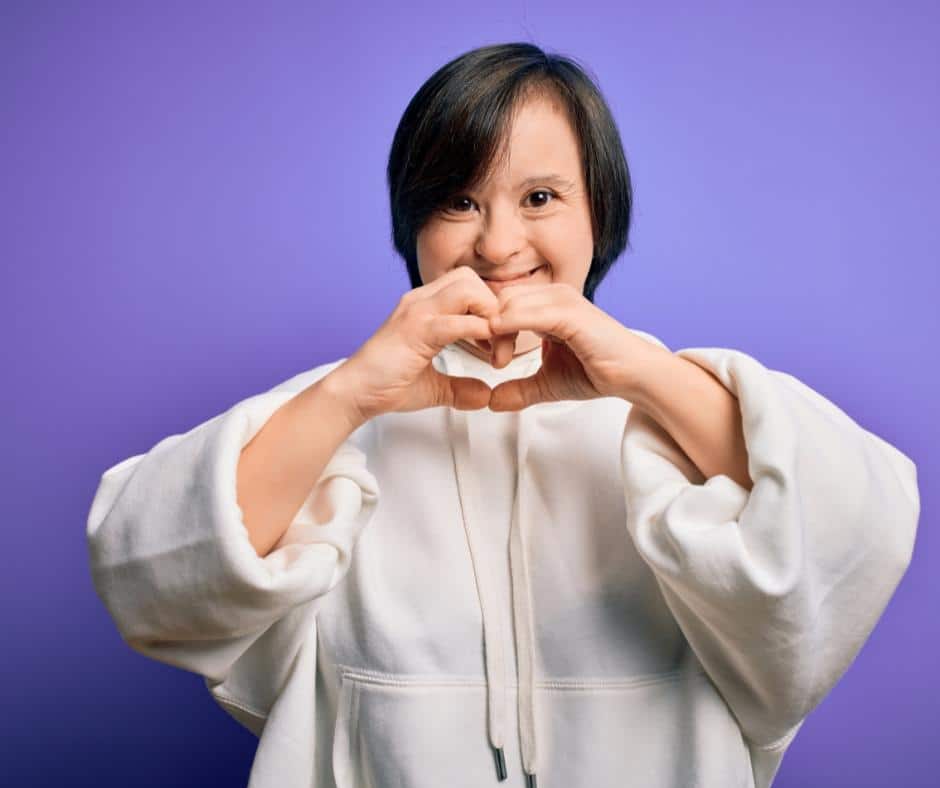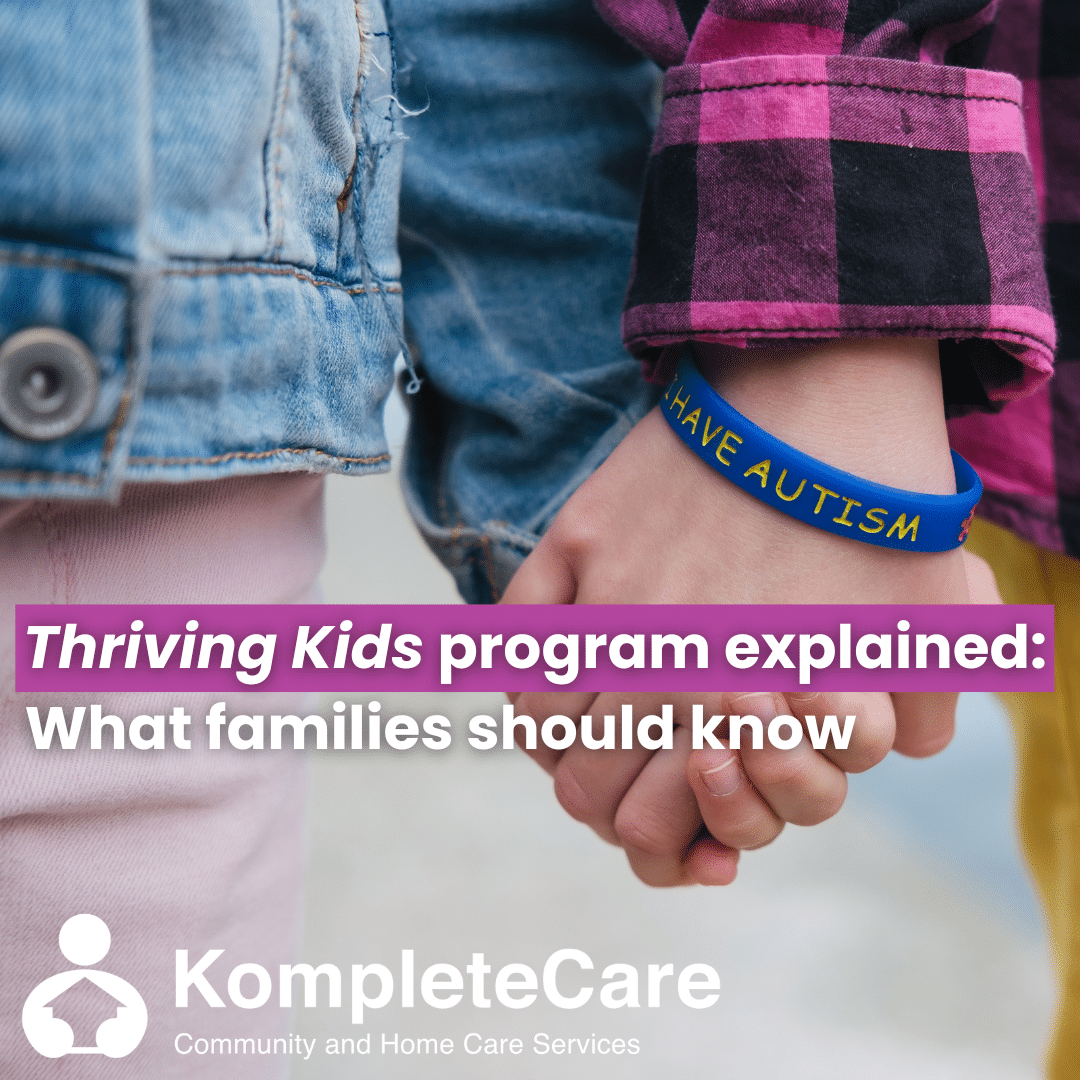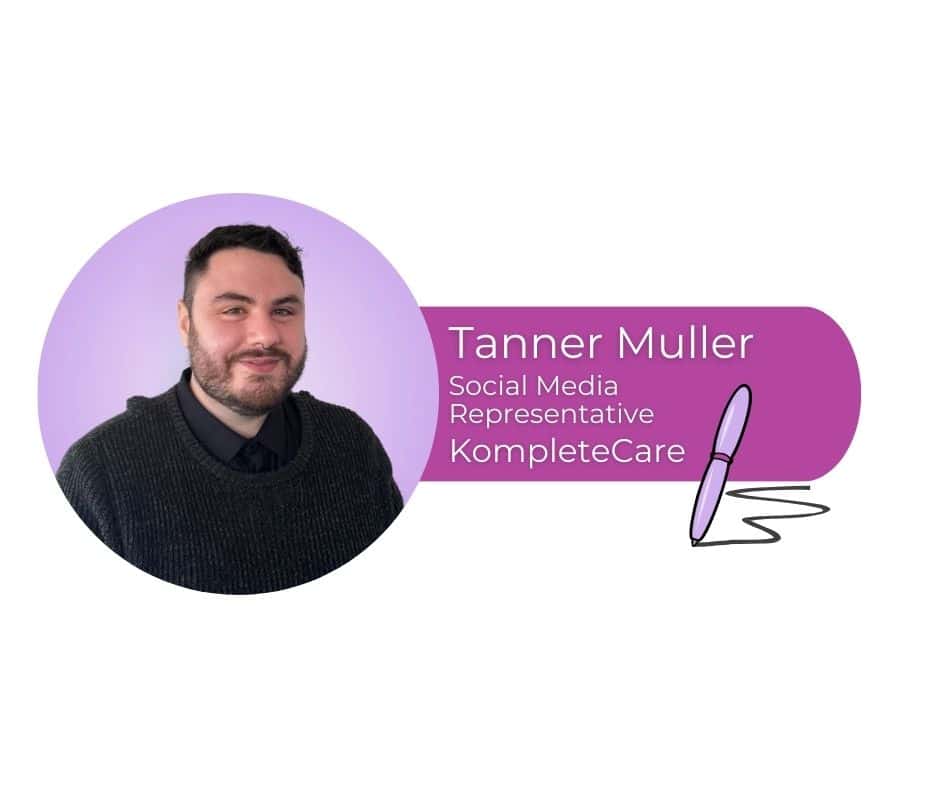Australia’s disability sector is preparing for one of its most significant shifts since the introduction of the NDIS, with the federal government announcing the Thriving Kids program; a $2 billion initiative designed to support children under eight with mild to moderate autism or developmental delay.
Set to commence on 1 July 2026, Thriving Kids will establish a national system of early childhood supports delivered through mainstream and community services (including GPs, maternal and child health, early education, schools, and playgroups). The program aims to ease mounting pressure on the NDIS, ensuring the scheme remains focused on Australians with permanent and significant disabilities.
As an organisation that works closely with NDIS participants and their families, KompleteCare is paying close attention to what this reform means for us. While not a replacement for the NDIS, Thriving Kids represents a shift in how our supports may be accessed and delivered.
Why change is needed
When the NDIS was first introduced, state and territory governments scaled back many of their own disability and developmental services, leaving families with few alternatives. As a result, the NDIS quickly became the default pathway for children with developmental concerns, including those whose needs were less severe.
This reliance placed enormous pressure on the scheme. Autism is the most common primary diagnosis, accounting for 35% of participants, while developmental delay makes up 11%. Among children aged 5 to 7, roughly 11% of boys and 5-6% of girls are enrolled in the scheme. Many remain on the NDIS beyond their early intervention years, adding to the scheme’s long-term financial strain.
The result is a program that now costs more than Medicare, with annual spending being forecasted to exceed $63 billion by 2028-29, overtaking our spending on Defence in the process. Although growth has moderated, without further intervention, costs remain on track to reach $105 billion over the next decade if further action is not taken.
For policymakers, Thriving Kids is not just a matter of budget restraint, it is about restoring balance. The NDIS was never intended to replace mainstream health, education, and community systems. Yet, with limited options, families have had little choice but to turn to it.
Without a sustainable alternative, both the NDIS and the families who depend on it risk being stretched beyond capacity.
What this means for families
For families, Thriving Kids offers the promise of easier access to the right support at the right time, without having to navigate the complexities of the NDIS application and review process. Parents will be offered guidance on daily routines, strategies to address developmental concerns, and advice on how to strengthen their child’s wellbeing across home, school, and social environments.
The aim is to reduce the number of families caught in limbo—those whose children need more than what mainstream services currently offer, but do not require the intensity of full NDIS support. With earlier intervention, the government hopes more children will live more independently, reducing reliance on the scheme in the long-term.
Implications for service providers
Community and in-home care providers, like KompleteCare, will also be impacted. Organisations delivering respite, social support, in-home care, and therapeutic services may see demand shift as some families transition from NDIS-funded plans into the Thriving Kids system.
This shift presents both challenges and opportunities. Providers may need to adapt their models to align with mainstream health and education systems, forming stronger partnerships with schools, GPs, and community centres. At the same time, a renewed focus on preventative and family-centred supports could create opportunities to expanding services that help children build independence and confidence earlier in life.
For children with lifelong and complex needs who remain on the NDIS, providers will continue to play a vital role in delivering specialised care. However, the balance of where funding and referral pathways is likely to change, making coordination between federal, state, and community providers essential to avoid gaps in support as the program rolls out.
A balancing act between sustainability and support
The government has made clear that Thriving Kids is not simply a cost-cutting exercise, but part of a broader plan to secure the sustainability of the NDIS. With nearly 6 million Australians living with disability, foundational supports like Thriving Kids are seen as critical to filling service gaps and ensuring the system can endure for future generations.
Still, uncertainty remains. Families and advocacy groups are watching closely to see how the program will be funded, what services will be included, and how transitions will be managed for children currently receiving NDIS supports. This one-year design and consultation window leaves limited time to finalise details before the phased rollout begins.
For families and providers alike, the success of Thriving Kids will depend on whether it delivers consistent, accessible, and evidence-based supports that genuinely reduce pressure on the NDIS without leaving vulnerable children behind. Organisations like KompleteCare will play a crucial role in supporting children through this transition, helping to ensure services remain seamless and effective.
If successful, the program could mark a major step toward restoring both balance and sustainability to Australia’s disability support landscape.
*All information provided is sourced from the Australia Government and is correct at the time of publication. Information may change until the Thriving Kids program commences on July 1st, 2026.









